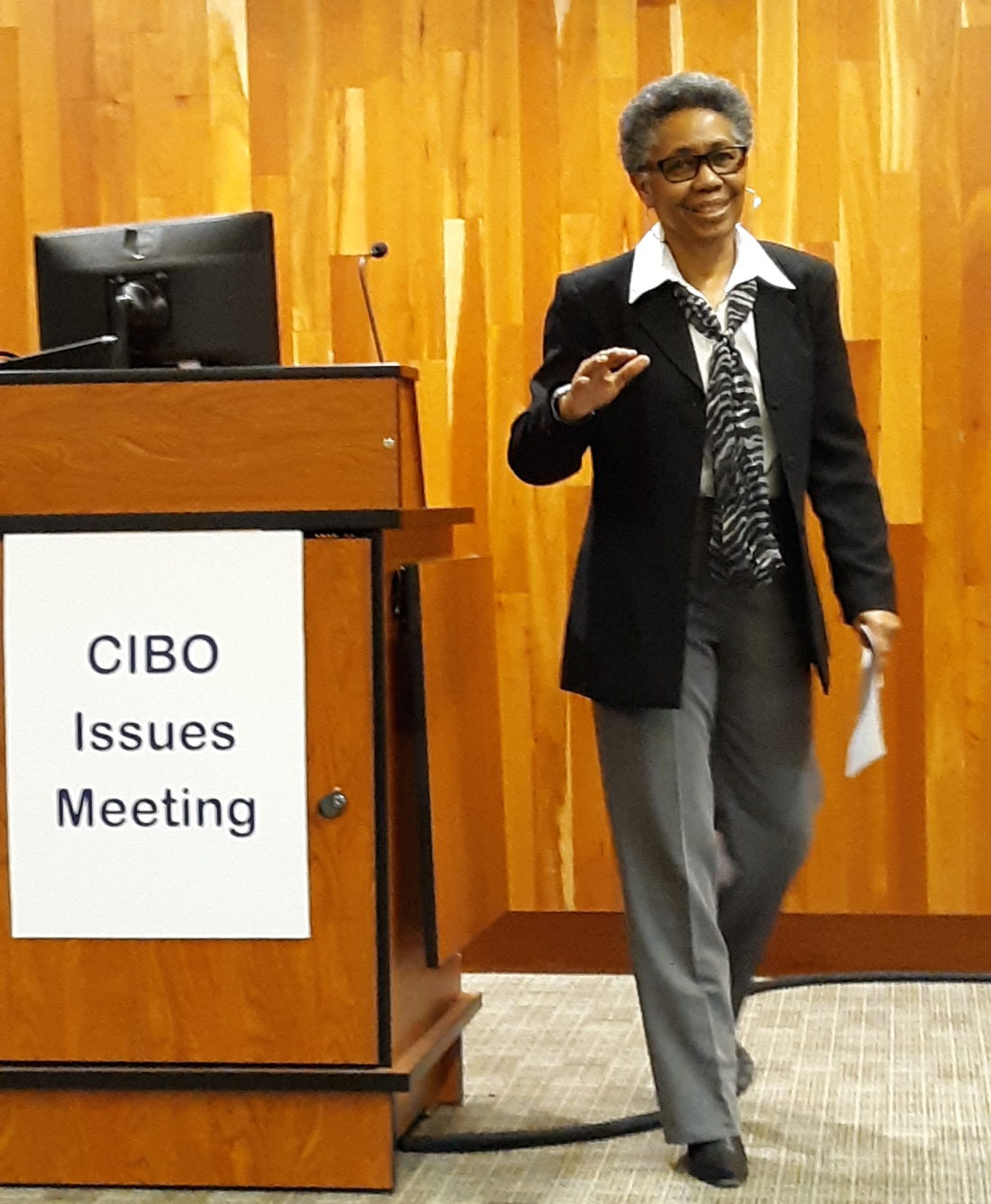Debra Campbell, Asheville’s new city manager, eschewed the podium when introducing herself to the Council of Independent Business Owners at the group’s Feb. 1 breakfast meeting. The symbolic lack of separation between Campbell and her audience seemed to mesh with the philosophy she outlined for her tenure in the city’s top unelected post.
“I did not come to this community to be a mover or a shaker. I came to this community to assimilate — to become a part of the community,” Campbell declared to a crowd of about 50 people. “I think that if I assimilate, then that means that I’m going to collaborate.”
Since leaving her previous role as Charlotte’s assistant city manager to take the Asheville job in December, Campbell said, she has focused on meeting as many community stakeholders as possible. Those discussions, she explained, have led to a slate of priorities with the common theme of making the city “the best partner that we can be.”
Campbell named a shortage of affordable housing as a “tremendous hurdle” to Asheville’s development, noting that high rents and mortgages may dissuade talented employees from coming to the city. She also mentioned the achievement gap between black and white students at Asheville City Schools (see ‘Beat back this monster,’ Xpress, Jan. 30), which has been the worst among all school districts in North Carolina since at least 2015.
“This may be a lane that you all may not think the city ought to be in,” Campbell said, “[but] again, if we’re going to be a premier city, all of our kids need to be educated, and they need to be prepared to be our future workforce.”
Last but not least, Campbell added, was a “significant need” for capital investments. She suggested that, even after Asheville’s 2016 issue of $74 million in bond funding, the city would explore “revenue diversification” through additional streams of income. In November, then-interim City Manager Cathy Ball proposed new sales and prepared food and beverage taxes for potential voter referendums in 2020.
“We cannot continue to have the enormous capital needs that are out there being paid for on the dime of the property tax,” Campbell said. “We’ve just got to figure out a different way.”
The most specific policy Campbell outlined at the meeting came in response to an audience question about “predictability” in the city’s permitting and development process. She explained that, while Asheville’s zoning ordinance outlines specific requirements for projects, City Council and developers often hash out details such as affordable housing incentives after a proposal has already cleared initial review.
“We can encourage Council to adopt a policy that says [affordable housing] is an expectation — not that it’s negotiated at the dais when you come to Council, but that it’s discussed with staff much earlier upstream in the process,” Campbell said. A recent 416-unit subdivision in South Asheville, for example, added an affordable housing condition on the day of its Council approval vote.
In closing, Campbell thanked her hosts and emphasized that her remarks were just the start of her involvement with the business community. “I will be knocking on your door,” she said. “This is a partnership.”





Best thing Campbell can do is call for the immediate consolidation of our two antiquated school systems into ONE system where all the Bunkum students can have diversity, equality and inclusion. Two systems do not deliver that which is crucial and taxpayers suffer the outrageous costs of operating two systems. WHEN will we do the right thing with government screwls here?
More taxes after the big boost that they are getting from the HCA deal. Maybe the city could discover some big wasteful spending items in the budget so as to not make the city less affordable for the locals. Government equals greed.